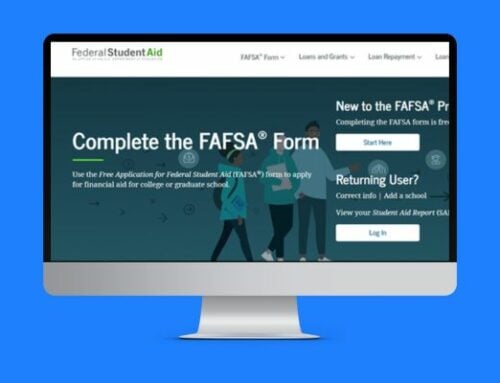Financial Aid Appeal: Should You Do It?
I’ve written before about college aid award letters and making sure you understand your true out-of-pocket expenses. You can read that here (LINK). So now that you have several award letters and understand them, can you go back to a college and ask for more money?
Yes, you can. And in certain situations, you definitely should.
When Should You Appeal Your Child’s Financial Aid Award?
1) When your financial situation has significantly changed
Sometimes life happens between the time you filed the FAFSA and when you’re actually committing to a school. The tax return they used is from 2 years ago. Maybe you’ve had a job loss or change where you’re making significantly less money, an injury or death of the primary earner. Is there a pending divorce or impact from a natural disaster? These can be good reasons to appeal. Basically, any time your financial situation has worsened between filing and receiving your award letter you should appeal.
2) You’ve received a better offer from another school
Your child has their heart set on going to school A, but school B gave them a much better offer. The key to this is the schools need to be comparable. I know another planner who was able to get Rochester Institute of Technology (my alma mater) to increase their award by $5,500 per year because they had a better offer from Rensselaer Polytechnic Institute. This probably wouldn’t have worked if the appeal was the local community college is going to give me a full-ride scholarship.
When Do I Need To File?
File as soon as possible. For many schools, once the money is gone, it’s gone. File your financial aid appeal as soon as you can. If 3 months after you submit the FAFSA, you’ve lost your job call the schools and find out their process. If it’s based on another school’s award, file it as soon as you’ve got all the data. It’s also always better to file (and resolve it) prior to paying your deposit. If a school has your money and knows you’re committed, they’re probably less likely to want to give you more money.
What Should a Financial Aid Appeal Look Like?
In any appeal, you’ll want to follow the process the school gives. There are certain best practices for the competitive appeal.
- Have it come from your student and be heartfelt. If this is their #1 choice, explain why. Make sure it’s accurate. Don’t try to obfuscate the situation.
- Keep it short – 1 page max
- Thank them for the current award
- Provide supporting documentation that compares apples to apples. This is where you’ll need to help your student. For a competitive appeal you’ll need to provide the other award and explain how this impacts you’re total cost of college.
- Proofread the letter making sure grammar and spelling are correct.
Is There a Downside to Appealing?
No. A school isn’t going to lower its award because you appeal. The only cost is the time it takes to put the appeal together.
Competitive appeals work best for similar schools that give merit aid. These are typically middle-tier, private schools that compete for students. This won’t work for the Ivy League or other top-tier schools as most of them don’t give merit aid.
Need help with an appeal? Have a high school student that is starting to look at colleges, but you’re scared about what it’s going to cost. Set up a no-cost call (LINK) to talk about your situation and our college planning offering (LINK).




